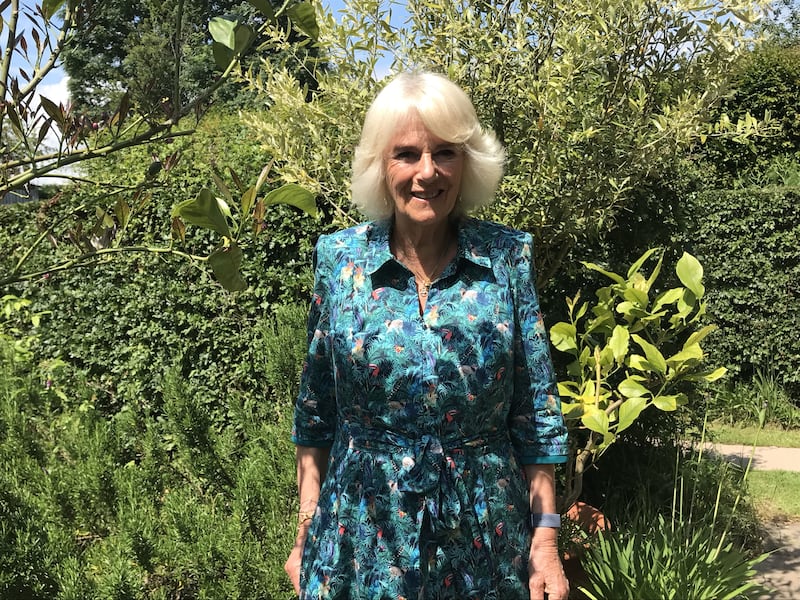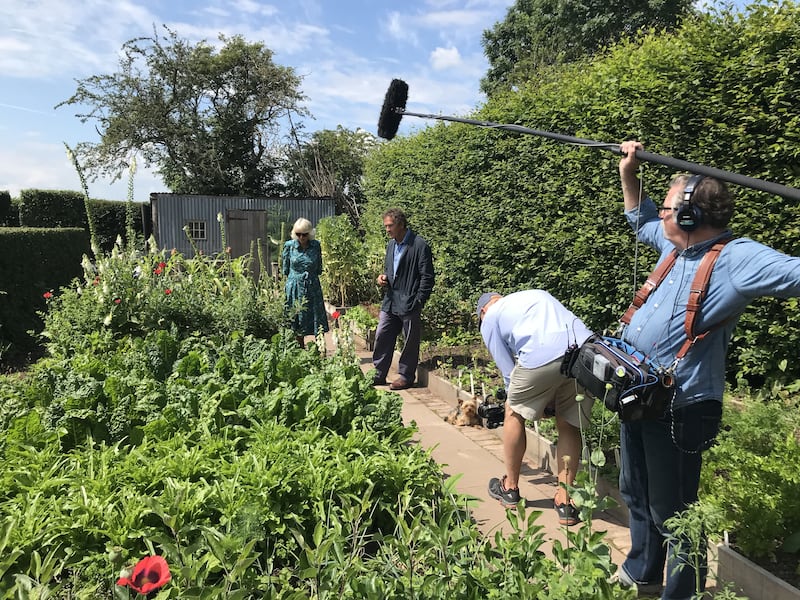The Duchess of Cornwall has been experiencing familiar gardening challenges, revealing to Gardeners’ World presenter Monty Don that uninvited guests had invaded her vegetable patch and eaten her produce.
Camilla, in a guest appearance on the BBC Two programme, told how mice and, in particular, voles had devoured her strawberries this year and eaten the asparagus roots she planted.
The duchess, who toured Don’s garden Longmeadow in Herefordshire, spoke of how gardening became a “spiritual experience” for many during the pandemic, and said she has started to develop her own woodland garden.
Discussing the tiny rodent culprits, keen gardener Camilla said: “I’m very lucky I’ve got a big vegetable garden, but you get the mice, the voles this year, all ate the asparagus roots and then they got into the strawberries, so you can never win, there’s always something.”
Don advised the duchess: “I think you just have to accept that there are some things that are just not going to go for you this year, whatever it might be.”
The chestnut-brown bank vole is our smallest vole and can be found in hedgerows, woodlands, parks and gardens 😍🐭
📷John Bridges pic.twitter.com/N2loazjGW2
— The Wildlife Trusts (@WildlifeTrusts) March 4, 2020
The duchess is not alone. The Royal Horticultural Society said four species of mice and voles – the wood mouse, yellow-necked field mouse, bank vole and short-tailed vole – can cause damage to gardens.
Most of the time population levels are relatively low and little plant damage is noticed, but mice and voles can reproduce rapidly under good conditions, leading to population explosions and damage to plants.
In lockdown, there was a surge in inquires about rodents, with experts suggesting people were more likely to notice the signs at home because they were spending more time there.

Rising rodent activity could be part of a longer-term trend owing to warmer winters over recent years, which has allowed rodent populations to increase. In Australia, vast tracts of land in New South Wales were devastated by an unprecedented mouse plague earlier this year.
The duchess, whose husband the Prince of Wales is a passionate gardener, said gardening had played an essential role in people’s wellbeing during the Covid-19 crisis.
“I think gardens got people through Covid. They realised how special a garden was and what they could do with it, they could become inventive, even if they hadn’t before they could start growing vegetables,” she said.
“It was a sort of spiritual experience for them, they discovered a sort of affinity with the soil – you can go into a garden and you can completely lose yourself, you don’t have to think about anything else, you’re surrounded by nature, you’ve got birds singing, you’ve got bees buzzing about – there is something very healing about gardens.”

On her plans for her own garden, Camilla added: “I’ve got a little bit of a woodland garden that I’ve started and I would love to build that up more. I would love to put down swathes of bulbs, and I would also like to have a proper wildflower meadow.
“At the moment I’ve got a bit, but the grass has sort of taken over and we’re going to have another go this year of planting more seeds, because I think, especially now, it’s ever more important to have these wild flowers – if we’re going to keep on attracting butterflies and bees.”
At one point, the pair were joined by Nellie, one of Don’s dogs. As Nellie rolled on the floor, the duchess gave her a tummy rub.
Camilla’s appearance on Gardeners’ World will be broadcast on BBC Two on Friday August 20 at 8pm.








